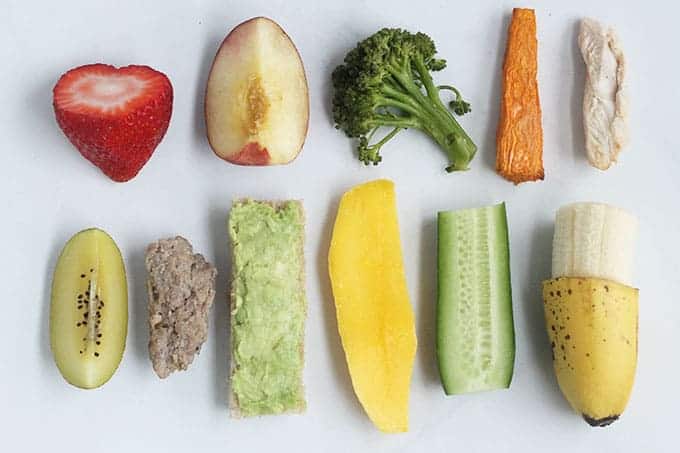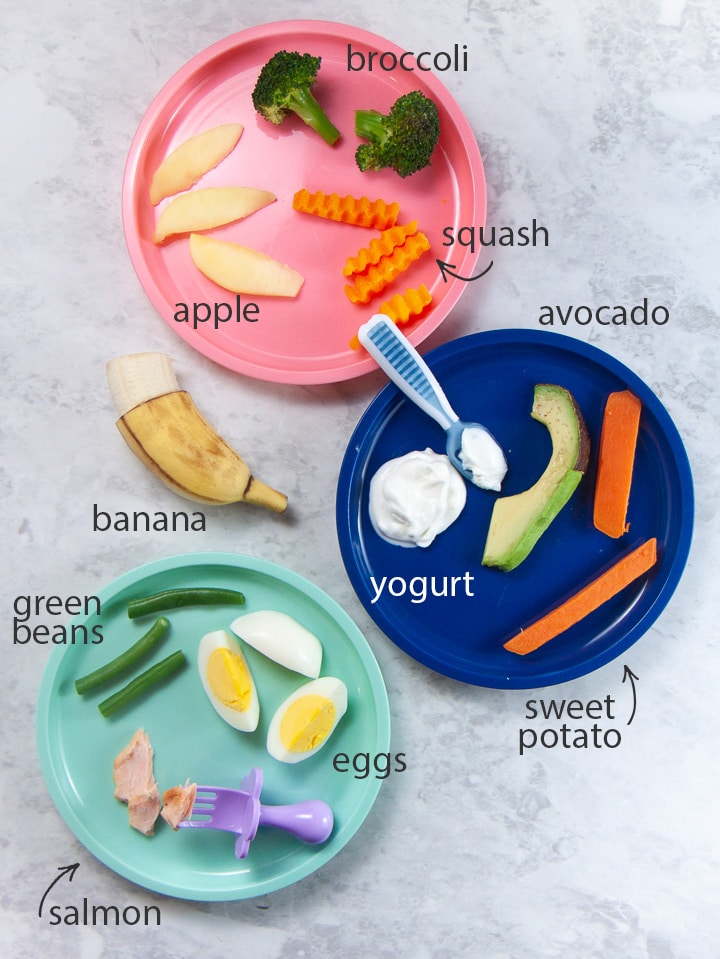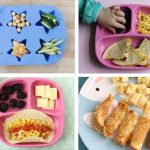Feeding your baby is more than just mouth feeding. It’s also about learning to eat. It’s learning them to enjoy their baby first foods. It’s about healthy relationships between parents and children and food being part of that healthy relationship.
My name is Dr Purnima Menon and this is my masterclass on feeding your baby’s first meal.
When will my child be ready to try their first food?
Six months is a great time to introduce your baby to his first food. It is a time when there is not enough breast milk to meet nutritional needs. It’s also a time when babies are ready to grow and are interested in trying new foods.
What is the best first food for babies?
It is very important that these early meals are as nutrient dense as possible. Chop out colorful vegetables like carrots, butternut squash, and sweet potatoes. You can give them fried meat. If your family eats it Eggs are a great first food for babies.
You can process almost anything you eat at home. You just need to squeeze and squeeze a small amount for the child. We also want to make sure we avoid baby first foods that do not provide vitamins, proteins and minerals to children. So we wanted to make sure the first course wasn’t too sweet. It’s not a lot of salt. But it is actually packed with nutrients that are suitable for brain development.
How should I cook my baby’s first meal?
If you start eating your first meal when your baby is 6 months old, you need to stop it urgently. The first type of food should be cold food. The child should be able to swallow easily. Now you can edit this over time. So when you eat for the first time You have to grind it properly. However, you can adjust the shape slightly as the baby gets a little older.
How can I make introducing first foods a fun and positive experience for my baby and me?
Baby first foods is more than just food. it’s about culture it’s about love It’s about children learning to be part of our family. And if parents consider this discussion Putting food in your child’s mouth can reduce stress a bit. And I think the best thing we can do is remind ourselves that children learning They are learning who we are. They are learning about the foods we eat as a family. They learn what they like because they don’t know what they like until they taste it. And we learn about them when we see them watching those foods. So it is very important not to worry. It is very important to approach it with patience, perseverance and genuine love. Because it’s ultimately about learning.
What if my child refuses the first meal?
Oh, the child always refuses to eat. you are trying something new It is very common that babies sometimes reject this taste. And sometimes science tells us that Babies have to taste something a few times before they get used to it. So it is very important that parents don’t lose hope or feel like a child. when they refused food they had long since refused And the best we can do as parents is to relax and try again.
Should I spoon feed my baby or let him eat on his own?
You can feed the baby with a spoon or very clean hands. It is very important to wash your hands and make sure everything you give your baby is as clean as possible. Again, one thing to remember is that Babies are learning and they are very interested in their food. So really feeding the baby So we need to give and take a little. Part of breastfeeding is listening to and paying attention to their signs. for parents to understand the signals the baby is giving them because they can’t see their own food They can’t talk to us and tell us if they’re not enjoying what we’re doing or if their stomachs are full. They can’t tell us verbally, so they use a combination of symbols to identify it.
What happens when you get a little older is that you often start touching food and eating on your own. ranging from eight months to one year we can control what we give our children. But you have to give them control over how they live and eat.
How often should you feed your baby solid food?
Once you start eating your first meal, you should start feeding them about three or more times a day. And as your baby gets older, at 9 or 12 months, you should increase this to four times a day. And that number should be increased. Therefore, an infant does not receive the same amount of food for 12 months to feed at 6 months of age. Frequency and amount should increase as the child grows.

Should I continue breastfeeding after introducing solids?
Definitely have to look after them. It is now recommended that breastfeeding be continued for at least two years and beyond. Breast milk and the nutrients it provides are, in a sense, the basis of good infant nutrition. And the first type of food is depriving babies of other essential nutrients for their physical and mental development.
A developing brain needs good nutrition. What we see with the first feeding is the injection of that nutrient into the brain development of the child. Parents spend a lot of time feeding their children in their early years, and feeding is also an opportunity for play and love. Creates opportunities for language development. Parents talk to their kids about food or talk to them while they eat. Appetite does more than stimulate the brain. and creating opportunities to combine nutrition, play, positive thinking, and what we know helps a child’s brain develop very well.











